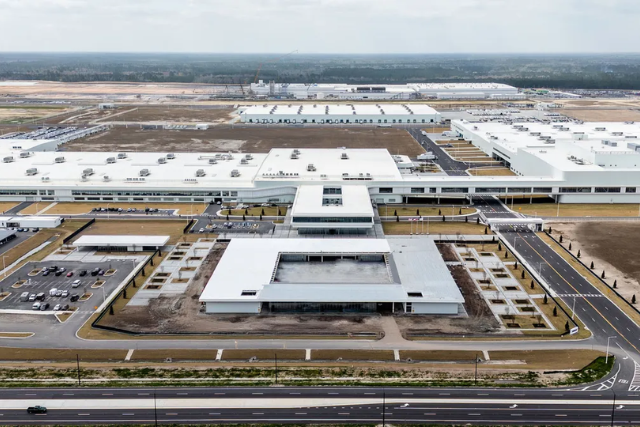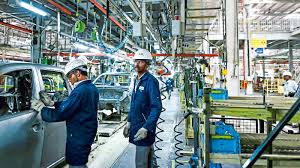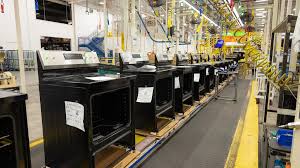
Amid policy changes, political shifts and an evolving energy market, the U.S. is seeing some of the biggest factory investments — and cancellations — in recent years.
In the first half of 2025 alone, manufacturers from Ford to JetZero and TSMC have announced massive new facilities while some renewable and battery plants are paused or scrapped entirely. The trend highlights both the resilience of U.S. manufacturing and the impact of shifting federal priorities.

According to E2, an environmental group, 16 clean energy and EV-related projects worth $8 billion were canceled in Q1. By May, that figure rose to $15.5 billion, wiping out an estimated 12,000 jobs that would have come with those projects.
The Trump administration’s push to pause clean energy incentives and boost fossil fuels and nuclear power has reshaped the outlook for companies betting on green tech. A new tax law restricting clean energy credits under the Inflation Reduction Act has added more uncertainty to the sector.
Still, several large-scale manufacturing investments are forging ahead, signaling where U.S. industrial growth may be strongest over the next decade.
AESC
The EV battery cell company paused its $1.6 billion South Carolina plant, originally launched in 2023, citing policy shifts and market uncertainty. AESC said it “fully intends to meet our commitments,” but hasn’t announced a new timeline.
Bosch
Bosch halted its $200 million hydrogen fuel cell facility in South Carolina, which was meant to supply Class 8 trucks and create 350 jobs. The company cited “significant changes” in the market and will “continue to re-evaluate the investment for local fuel cell manufacturing when regional market demand increases.”
Freyr, now T1 Energy, canceled its $2.5 billion battery cell factory in Georgia that would have employed 700 people. Instead, it’s pivoting to solar. After acquiring Trina Solar’s 5 GW solar module plant, it announced a new 5-GW solar cell plant, aiming for construction this year and production by mid-2026, adding up to 1,800 jobs.

Kore Power shelved its planned $1.2 billion battery plant in Arizona. The site is now for sale, and its founder has stepped down. The plant was expected to deliver 6 GWh of capacity, expand to 12 GWh, and create 3,000 jobs. The company claims it never received an $850 million DOE loan.
The chip giant delayed construction of its $28 billion Ohio One campus, which includes two semiconductor fabs supported by $1.5 billion in CHIPS Act funding. Originally scheduled for 2026, production is now delayed to 2030 and 2031. The project still promises 10,000 jobs when complete.
Despite the challenges, Ford’s BlueOval SK Battery joint venture with SK On is on track to launch production this year. The $11 billion plan, with plants in Kentucky and Tennessee, is backed by a $9.6 billion federal loan and $500 million in state grants.
In March, Hyundai opened its massive Georgia EV and hybrid vehicle plant. This $12.6 billion project, called a “key pillar” of Hyundai’s growth, is Georgia’s largest-ever economic development project. Hyundai says it will produce 500,000 vehicles annually, create 8,500 jobs by 2031, and expand with an additional $21 billion by 2028.
JetZero’s $4.7 billion aircraft plant in North Carolina is expected to break ground next year. It will deliver the state’s largest single-job creation with 14,500 new roles, and aims to launch its first commercial plane by decade’s end.
TI has committed a staggering $60 billion to build seven semiconductor fabs in Texas and Utah. Four fabs at a Texas site alone are getting $40 billion and will begin production in phases, supplying chips for Apple, Ford, Nvidia, and others. The entire plan could create 60,000 jobs.
TSMC
TSMC keeps growing in Arizona. After starting volume production at its first fab late last year, it finished its second fab, with operations expected by 2028, and broke ground on a third, due in 2030. TSMC has pledged $165 billion total, adding “three new fabrication plants, two advanced packaging sites, and a major R&D center.” Combined, these sites are projected to generate 40,000 construction jobs and expand America’s chip capacity for years to come.
With federal incentives shifting and global supply chains still adapting post-pandemic, U.S. manufacturing is seeing clear winners and losers. While battery and hydrogen projects stumble, chips, aircraft and advanced vehicles remain bright spots — keeping the sector’s transformation underway.
Originally reported by Sakshi Udavant in Construction Dive.